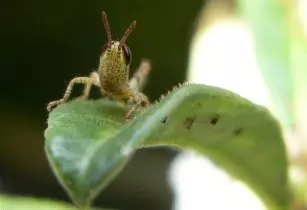The Commission on Phytosanitary Measures (CPM), governing body of the International Plant Protection Convention (IPPC), will hold its annual meeting to review the state of plant health and protection
Themeeting further aims to adopt new international standards aimed at stopping the spread of plant pests including protocols to block devastating pests such as Xylella fastidiosa and the oriental fruit fly.
Globally, annual crop losses to plant pests are estimated to be between 20 per cent and 40 per cent of production. Plant diseases cost the global economy around US$220bn each year.
The IPPC is the only international body for setting and implementing phytosanitary standards to protect plants from pests and diseases and ensure safe trade in plants that are recognised by the World Trade Organisation SPS Agreement and governments around the world.
During its 14th session, the Commission will adopt:
· A new standard to provide guidance on improved fumigation methods to control regulated pests. This is in response to growing concerns over fumigants that can be harmful to human health and the environment.
· Diagnostics protocols that describe procedures and methods for the official diagnosis of six pests, including Xylella fastidiosa - a bacterium that has been increasingly spreading and attacking economically important crops such as olive, citrus or plum trees and grapevines - and the oriental fruit fly (Bactrocera dorsalis), which has affected trees such as avocado, banana, guava and mango in at least 65 countries in sub-Saharan Africa and Oceania.
The Commission is set to discuss the concept of commodity and pathway standards to support the setting up of ground rules for countries to commence trade also with the aim of introducing new opportunities for developing countries.
The week-long meeting will also discuss High-throughput sequencing (HTS) technologies to detect regulated pests and make recommendations for countries who choose to use HTS, which are in the early stages of development.





